Eastern Washington University’s electrical engineering club is proving that even a worldwide pandemic can’t keep an eager engineer from making advancements. Even though club members are now spread out and meeting only in a virtual space, they’re collaborating like never before, developing with top-of-the-line technologies and learning new skills aimed at impressing potential employers.
Eastern’s IEEE Club is the student branch of the local chapter of the Institute of Electrical and Electronics Engineers (IEEE). The IEEE is the world’s largest technical professional organization, one dedicated to advancing technology for the benefit of humanity. EWU’s club had just started an ambitious hardware/software project last spring when COVID-19 hit and scattered the students physically.
“Instead of folding up shop, the club asked, ‘How can we keep going?’ In doing so, they offered a community to electrical engineering students, or anyone who wanted to join, to collaborate over the summer to work on a project that’s going to help them get a job,” says Uri Rogers, the club’s faculty advisor. “And they just kept going over the whole summer with this huge energy and passion. It was impressive.”
Club members quickly reorganized and moved their meetings to an online video format. But it didn’t take long for them to figure out they’d have to make a lot more changes to the ways they were previously accustom to working together.
“Holding stuff up to the camera is actually really hard, it’s hard to capture,” says Chris Burdick, an EWU senior and the club’s vice president. “So, schematics and written documents became more valuable for us at this point. Now the collaboration is kind of asynchronous with our use of online tools, and then we have our meetings where we can express more broad ideas. It’s good to see everybody’s faces, too.”
Next club members had to figure out how to complete physical projects with no access to university labs and without their normal array tools. One of the first things club president and EWU senior Cody Birkland did was put together component kits and mail them to the members. While the numerous adjustments felt like simply work arounds at the time, the team has realized the situation taught them invaluable real-world skills.
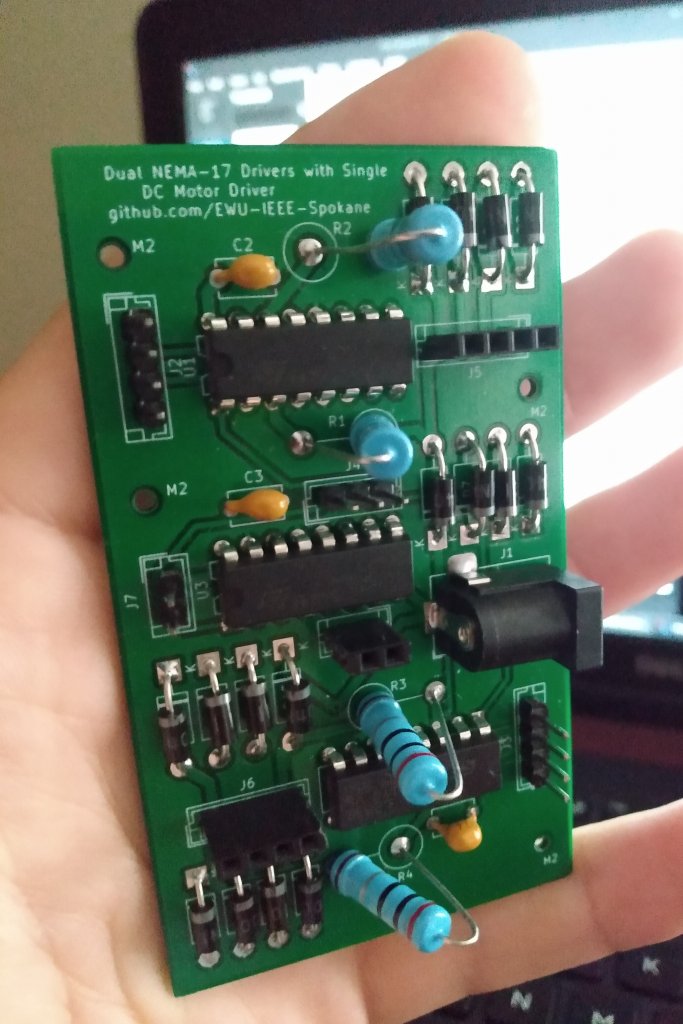
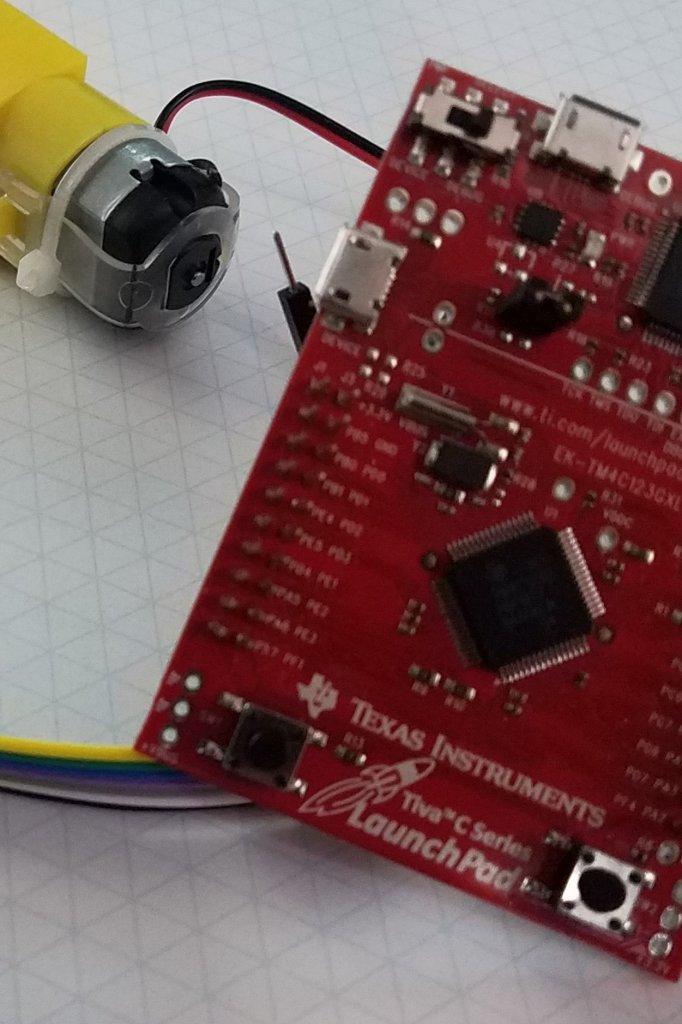
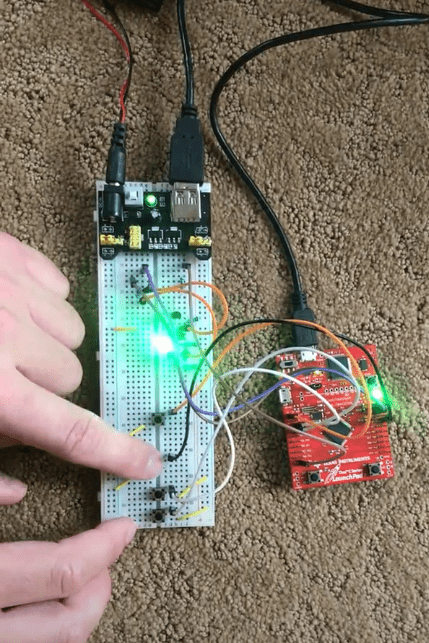
“When you’re working right next to someone it’s just easier to communicate and show people things. Now it takes a lot more documentation and a lot more creativity to collaborate on technical projects,” says Birkland. “We’ve developed a lot of new tools that we use for sharing content. It’s really great because we might not have learned those things otherwise.”
Some of the virtual tools used by the group include a GitHub repository for managing software development (created and managed by Jaidon Lybbert, an EWU junior and club secretary) and a Discord server for discussions and social communications (created and managed by club member Michael Simmons, an EWU junior).
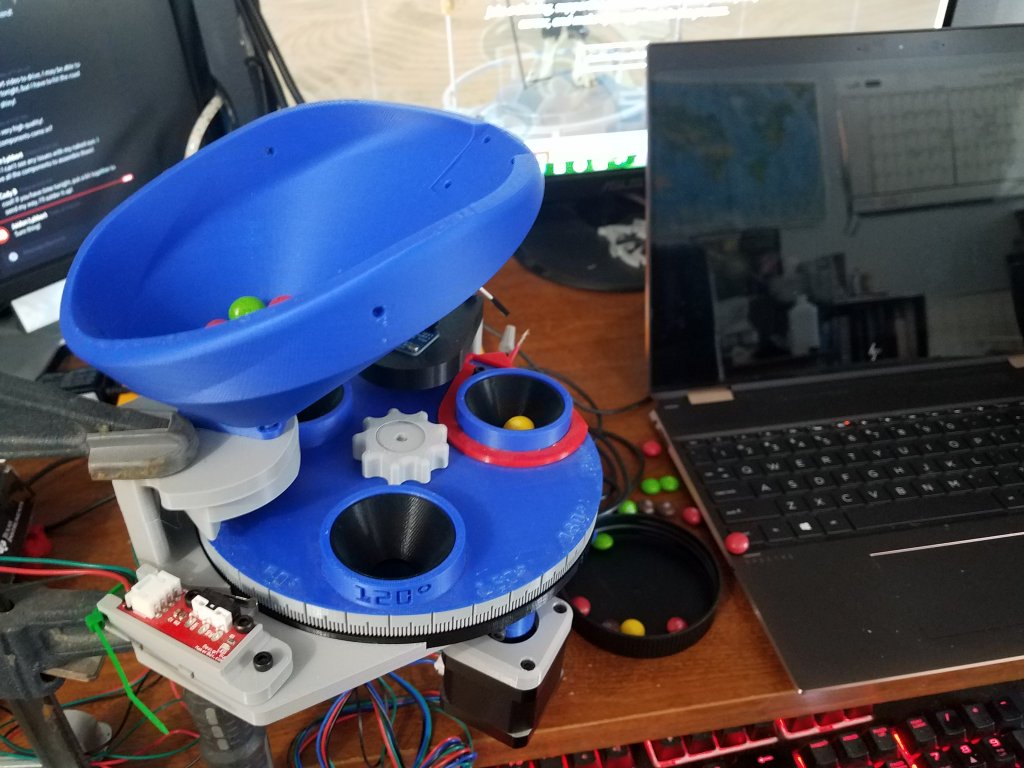
After working remotely through spring quarter and over the summer, the club is nearly finished developing a concept for a complex industrial sorting machine. They proposed the project to the IEEE Spokane chapter, who then helped fund the project.
“The application we’re starting out with is sorting Skittles by color. We pour in colored candies, like Skittles or M&Ms, and it separates them,” says Birkland. “It sounds like a simple task, but it involved a lot of really technical challenges—things like image processing, motor control, circuit design, mechanics and manufacturing. It was a very diverse project that we could break into separate tasks and work on.”
The concept worked well for the physically separated team. They’re slated to present it to IEEE in November and, hopefully, to the campus community sometime this year. But as the club’s advisor points out, their success will be even more apparent when they reach the job market.
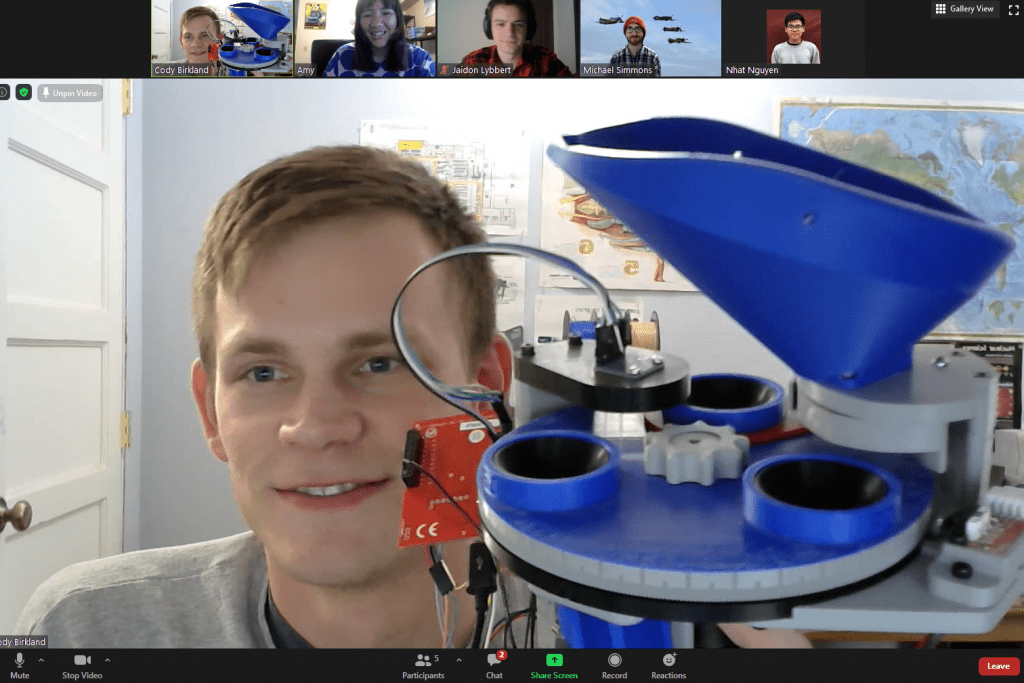
“I think the big show for these students is going to be walking into an interview and being able to talk about these skills, like GitHub, the industry standard for how to do development of software now,” says Rogers. “You walk in and you say, ‘I know how to do GitHub as an electrical engineer,’ and employers are going to say, ‘Wow!’”
As the sorting project wraps up, the club is currently looking ahead to new projects for this academic year. They’re looking for new members too. As club treasurer and EWU senior Amy Swanson points out, the virtual format actually makes participation more convenient for many students.
“I think it’s easier for people to meet virtually because we don’t have to drive anywhere,” she says. “And it’s allowed us to expand our network. We’ve met with IEEE students from all over the country, so it’s expanded our opportunities in some ways.”
Swanson and the other members also stress that many of the club’s activities are designed to help students get a start in electrical engineering. You don’t even have to be an EE major to join. The club offers a number of entry-level projects, tutorials and networking opportunities with local companies like Avista, F5 Networks and Itron. Find more information and reach out to the club on EagleSync.
Student Members of IEEE
- Chris Burdick, Vice President
- Cody Birkland, President
- Jaidon Lybbert, Secretary
- Nhat Nguyen
- Michael Simmons
- Amy Swanson, Treasurer
- John Thomas
Non-IEEE Club Members
- Timothy Gibson
- Wilson Ibyishaka
- David Liddington
- Ian MacWilliams
- Jacob Patshkowski
- Toan Phan
- Matt Sheldon
- Isaac Hernandez-Dominguez
- Cyrus Cruze
- Paxton Irving

